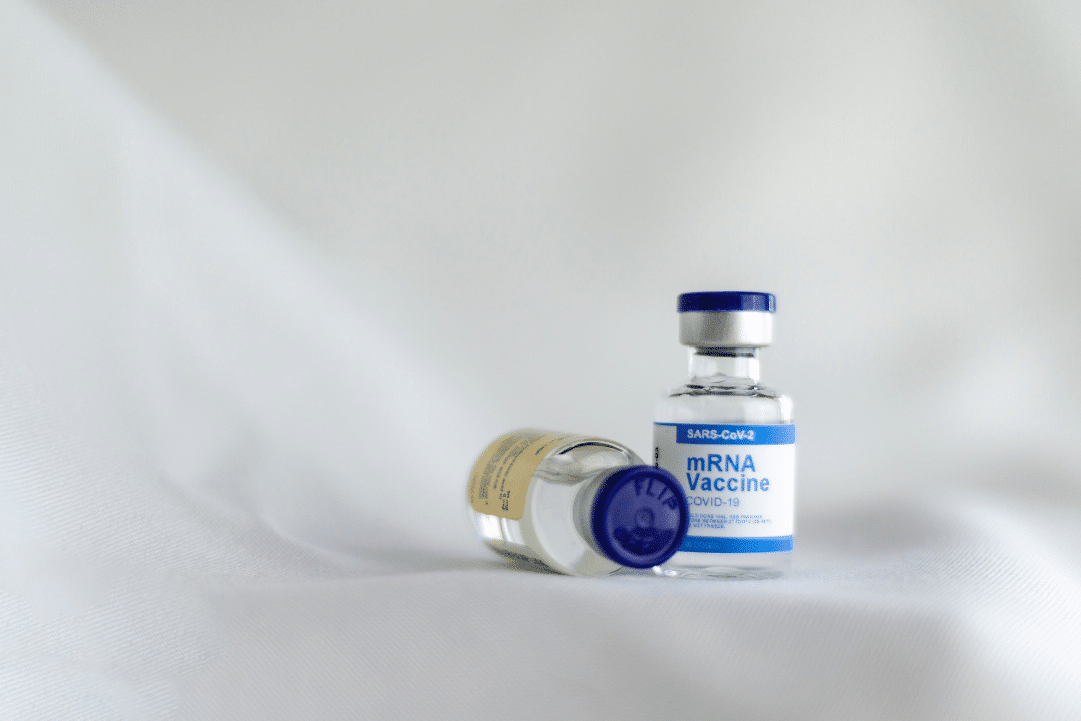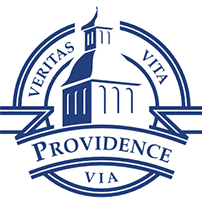OTTERBURNE, MB – On Tuesday, July 13th, Providence held a public panel discussion on the topic of “Vaccines, Restrictions, and the Church.” The event was planned by our COVID-19 Response Team who applied and received a grant from the provincial government for the sole purpose of event promotion and advertising.
Our panelists, who so graciously volunteered their time and expertise, included: Rev. Dr. Robert Dean (theologian), Rev. Terry Kaufman (pastor), Dr. Chris Burnett (medical doctor) and Dr. Rebecca Dielschneider (immunologist). The event was moderated by Dr. Nicholas Greco, Providence’s Provost pro tem. More than 120 people attended the online event.
Dr. Greco framed the discussion by saying, “Tonight, we want to ask the important questions about what the role of the Church is in public health. What are the responsibilities that we as Christians (as the Body of Christ) have and how do we then deal with disagreements and challenges and restrictions and the question of vaccination?”
Rev. Dr. Robert Dean, Providence’s Associate Professor of Theology and Ethics, was the first of the panelists to speak. He provided a theological framing for the role of the Church during the pandemic. He spoke about how “a recovery of the vocation of the pastor as truthteller” is needed to combat conspiracy thinking that people often acquire by travelling down the rabbit hole of social media.
He also addressed how the discourse of personal rights is not the best way for Christians to approach the issue of pandemic restrictions. This became a theme echoed throughout the rest of the evening with all our panelists; We shouldn’t look at vaccination, or even mask wearing, as a violation of our personal rights and freedom but more as a sacrificial act of love for the sake of our families, neighbours and the most vulnerable in our communities.
“An emphasis upon one’s own personal safety or upon one’s personal freedoms sounds much more like the rhetoric of secular modernity than that of the Christian tradition,” Dean noted. “The freedom that the Bible speaks of is not simply the freedom from constraint or limitation, rather it is the freedom to love the Lord our God with all our heart, soul, mind, and strength, and to love our neighbours as ourselves.” Dean concluded his presentation by stating, “In times of pandemic, and in more normal times, Gospel-people is who Christians are always called to be.”
Rev. Terry Kaufman, from the Evangelical Free Church of Canada (EFCC) national office and a member of Providence’s Board of Governors, spoke about how we need to refocus on aligning ourselves with the values of the kingdom of God, rather than being consumed with pandemic limitations.
He offered reflection on the first four chapters of Philippians. Just as the Apostle Paul in Philippians 1:12 spoke about how his circumstances (i.e. his incarceration) turned out for the greater progress of the gospel, we too as the Church during the pandemic should be looking for opportunities to reach out to people. Local church Initiatives such as buying and delivering groceries for those who are in isolation or in need of help go a long way in expressing our love and concern for others.
The next panelist, Dr. Chris Burnett, a physician from Niverville, spoke more broadly about his close encounters with pandemics throughout his lifetime. At the age of six, in Scotland, he remembered an outbreak of typhoid fever where the whole city of Aberdeen quarantined and at least 400 people died. As a missionary doctor in Africa, he remembered the start of Ebola in Zaire (1976), as well as the outbreak of AIDS in the 1980s.
“In many ways, the AIDS pandemic mirrors our COVID experience,” Burnett reflected. “The Church’s start with AIDS was messy. There was a lot of guilt and blame, and churches pitted against each other. But now, we see how Christians have led the way in building hospices to look after people dying with AIDS throughout the world.”
Burnett spoke about the fear that still surrounds COVID. Information is changing constantly and it’s difficult to gain the confidence of people when they’re hearing conflicting messages. Scientists and politicians are basically learning as they go. As a physician, he admits that he is “caught up in emotion at times” and that it has been hard for him to remain dispassionate when he has lost 12 patients to COVID in these last 18 months, and when he is treating people who will never be the same again because they are battling serious issues with their lungs and respiratory systems. “That’s the reality of what we’ve all faced with COVID. The humanity of the suffering,” confided Burnett.
The discussion then turned to the division and disunity in the North American church and how COVID issues are dividing friends and family. Dr. Rebecca Dielschneider, Immunologist and Assistant Professor of Biology, shared how her friends in the scientific community have been watching the media reports and been disillusioned by the stance of the Church during COVID. To help further understand the scientific perspective, she provided hyperlinks to online resources https://www.christiansandthevaccine.com/ and https://canadiansciencesocieties.ca/ and a recommendation for the book “Denying to the Grave: Why We Ignore the Facts That Will Save Us” by Drs. Sara & Jack Gorman.
She continued by sharing about the scientific process. “Science isn’t static,” commented Dr. Dielschneider. “Scientists are always learning as we go. We are always acquiring new knowledge and piecing things together in new ways and putting our old knowledge out of date.”
There are still polarizing, unanswered questions that remain for the science community, such as: Will this virus stick around and become endemic? And why are some infected people symptomatic and others not? Dr. Dielschneider acknowledged that, although it may be overwhelming to think of the road ahead, she is encouraged by the progress we have made already. “Scientists have sequenced the genome of a novel virus (SARS-CoV-2), understood the disease it causes (COVID-19), provided guidelines to lower transmission, developed vaccines to prevent people from getting sick, and tested therapies to treat those who do get sick. That’s a lot of progress!”
Following these opening remarks, the panel began to field questions based upon submissions by the attendees. Some of the questions included:
- What constitutes the truth? Why does it seem like there isn’t any scientific consensus?
- Are scientists being censored?
- How do we reach the point that it’s safe to vaccinate? What is the evidence?
- Was there anything unethical done in the testing of the vaccine?
- Have aborted fetal cell lines been used in vaccines? And, therefore, is getting a vaccine akin to participating in abortions or abortion-related activities?
- What do you think of repurposing drugs to treat COVID (i.e. Ivermectin for early, mid and late-virus-stage treatments)?
- What is the Christian’s role in pushing against what is seen by some as government oppression particularly in terms of gathering to worship together?
- How do we best serve people who need emotional and spiritual help amid COVID restrictions?
- Have the restrictions caused more harm than good?
- What happens if the local church begins to require vaccine passports for in-person (onsite) worship?
- How do we live with each other – vaccinated and unvaccinated?
- How do we navigate opposing views within the Church? How do we love and respect each other? How do we hold varying positions and still work side by side for the gospel’s sake?
The entire evening concluded with a reflection on what do we do from here. What is God saying to the Church? Burnett stepped up by saying, “It’s all about humility and love. We are learning that we can have different views and still express love for each other. I think we can show that to a world that is equally divided.”
Dean interjected that, “The only way we can deal with our past is through forgiveness. There can only be forgiveness where the truth is acknowledged.” Dr. Rebecca then added that empathy is needed, “This pandemic has been so hard on so many of us. And if we pause and listen to each other a little bit more, then we can share those feelings. We can share each other’s burdens. We can walk alongside of one another.”
Kaufman ended with a prayer, “Father God, as we bow in your presence, we acknowledge who you are: sovereign, wise, all-powerful. You are full of love and compassion, forgiving, just, righteous and pure. You alone are worthy of our trust…Unite us in the gospel, in the truth of who you are and what you’ve done…” Amen.
If you are interested in viewing the full two-hour Zoom recording of the “Vaccines, Restrictions, and the Church” event, please click HERE.


